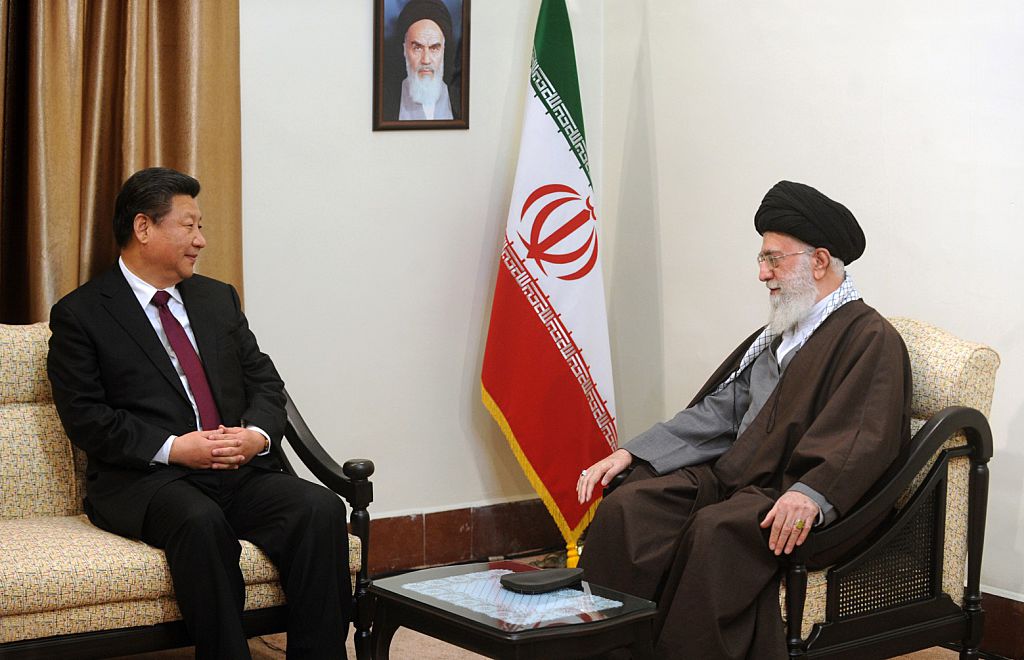The signing of a 25-year cooperation agreement between the oil-rich and regionally influential, but US sanctioned, Islamic Republic of Iran and the globally powerful, but US pressured, People’s Republic of China inserts a new strategic pincer in the Middle East for the United States and its allies. Former US President Donald Trump must bear most of the responsibility for this development, which President Joe Biden now has to handle.
The agreement is the culmination of growing economic, trade and military ties between the two countries since the advent of the Iranian Islamic regime following the revolutionary overthrow of the Shah’s pro-Western monarchy 41 years ago. Although the contents of the deal haven’t been fully disclosed, it will certainly involve massive Chinese investment in Iran’s infrastructural, industrial, economic and petrochemical sectors. It will also strengthen military, intelligence and counterterrorism cooperation, and links Iran substantially to China’s Belt and Road Initiative as an instrument of global influence.
China–Iran trade amounted to some US$31 billion in 2016 following the conclusion of the landmark multilateral Iran nuclear agreement known as the Joint Comprehensive Plan of Action, or JCPOA. However, it declined after Trump withdrew from the deal in May 2018 despite opposition from the other signatories (Britain, France, Germany, Russia and China) and imposed harsh sanctions on Iran. The trade volume is now nonetheless set to reach new heights. Underpinning this exponential elevation of relations is the two sides’ mutual interest in countering the US and its allies.
Read the article by Amin Saikal in The Strategist.

